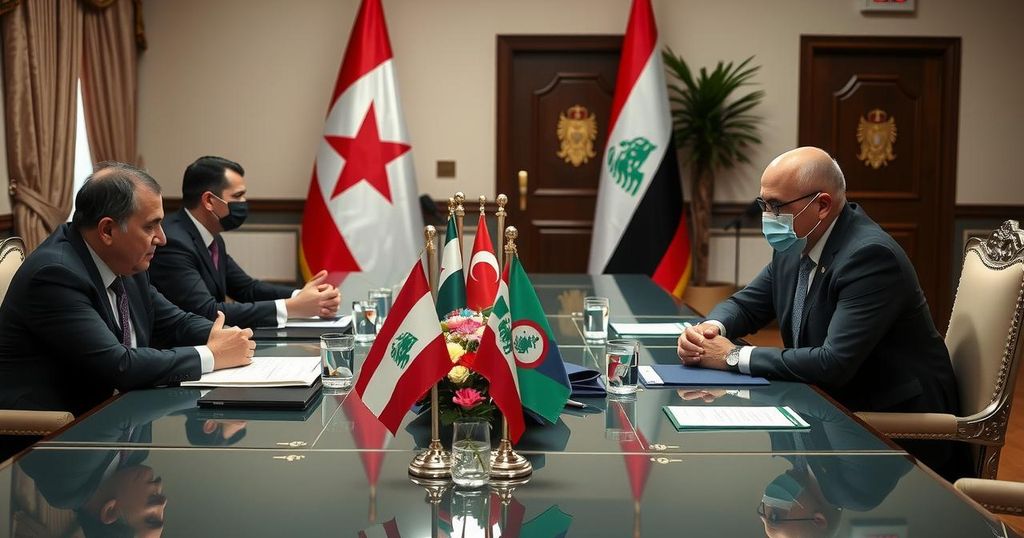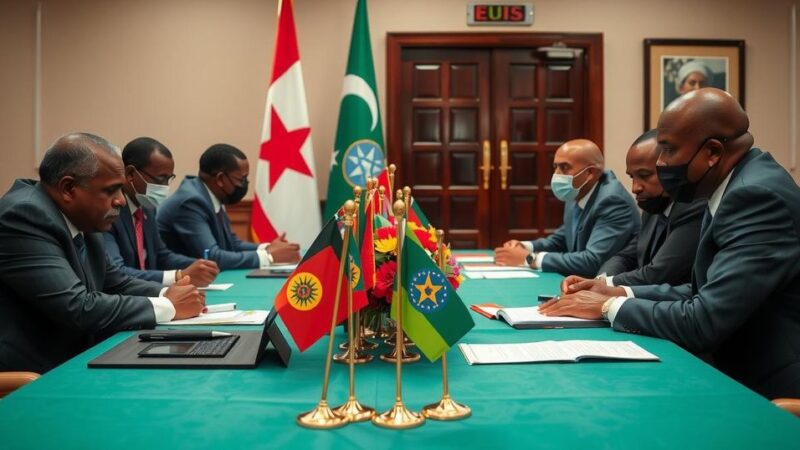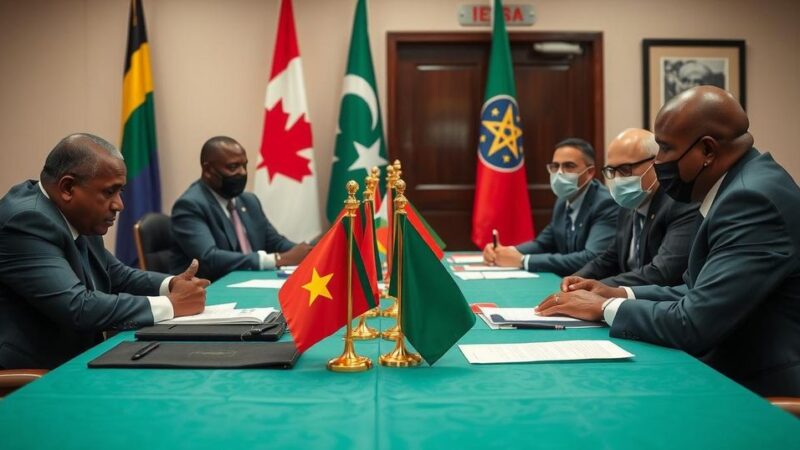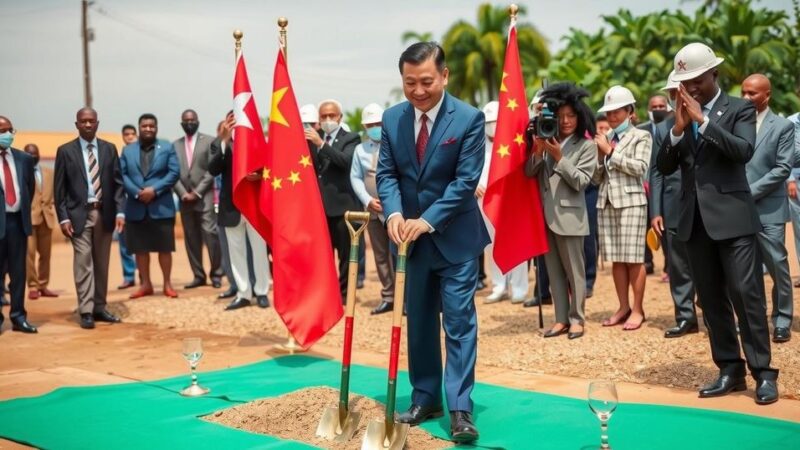Ahmad Sharaa, Syria’s new leader, urged Lebanon to move beyond past negative relations and enhance strategic ties during a meeting with caretaker Prime Minister Najib Mikati. He emphasized non-interference and respect for sovereignty, aiming to resolve border security issues and the fate of missing Lebanese citizens. The discussions signify a potential new phase in diplomatic relations, focusing on mutual interests and cooperation between the two neighboring countries.
Ahmad Sharaa, the newly appointed leader of Syria, has urged Lebanon to move forward from the historically negative relations established during the Assad family’s reign. Sharaa emphasized the importance of a new beginning during a press conference held after a meeting with Lebanese caretaker Prime Minister Najib Mikati in Damascus. He stated his commitment to addressing lingering issues and establishing enduring strategic ties between the two nations, which share significant mutual interests.
Sharaa expressed a desire to foster a positive relationship based on mutual respect and sovereignty. He acknowledged the damaged ties resulting from past interventions by the late Syrian President Hafez Assad and his successor Bashar Assad, confirming a shift in policy that would involve non-interference in Lebanese domestic politics.
The Syrian military’s involvement in Lebanon has been a contentious issue, beginning with their entry in 1976 to help quell civil strife and enduring for nearly three decades until the withdrawal in 2005 following political pressure and accusations tied to the assassination of former Lebanese Prime Minister Rafik Hariri. Over the years, Syria wielded significant influence over Lebanon, often orchestrating political appointments and manipulating governance.
In light of recent developments, Sharaa highlighted the need to manage the shared borders effectively and address illegal crossings that facilitate arms and drug smuggling. He assured that both nations would work together to secure their frontiers and navigate unresolved matters such as the fate of Lebanese individuals reportedly missing in Syrian detention.
Sharaa also committed to non-partisan governance, stating that the new Syrian administration would not favor any Lebanese faction over another. Concurrently, Mikati underscored the urgency of delineating land and maritime boundaries and securing joint efforts to enhance mutual security.
Both leaders expressed a joint commitment to addressing issues that have historically strained relations, indicating a willingness to form a new chapter in Syrian-Lebanese diplomacy.
Relations between Syria and Lebanon have been complicated, shaped by decades of military presence and political control instigated under the Assad family. The Syrian Army’s entry into Lebanon during the civil war initiated a prolonged period of influence that culminated in political manipulation and control, characterized by the dominance of Syrian-backed parties in Lebanese governance. The Taef Agreement of 1990 further solidified Syria’s role as a power broker until its influence waned after the onset of the Syrian Civil War in 2011, prompting the current need for reestablishing diplomatic ties and cooperation between the two nations under Sharaa’s leadership.
In conclusion, Ahmad Sharaa’s recent statements regarding the future of Syrian-Lebanese relations suggest a significant shift away from past policies marked by interference and domination. By emphasizing respect for sovereignty and mutual interests, Sharaa aims to pave the way for a renewed partnership. Both nations are now tasked with addressing critical issues concerning border security, political stability, and the painful legacy of missing individuals, as they strive to cultivate a cooperative and respectful relationship moving forward.
Original Source: www.upi.com







